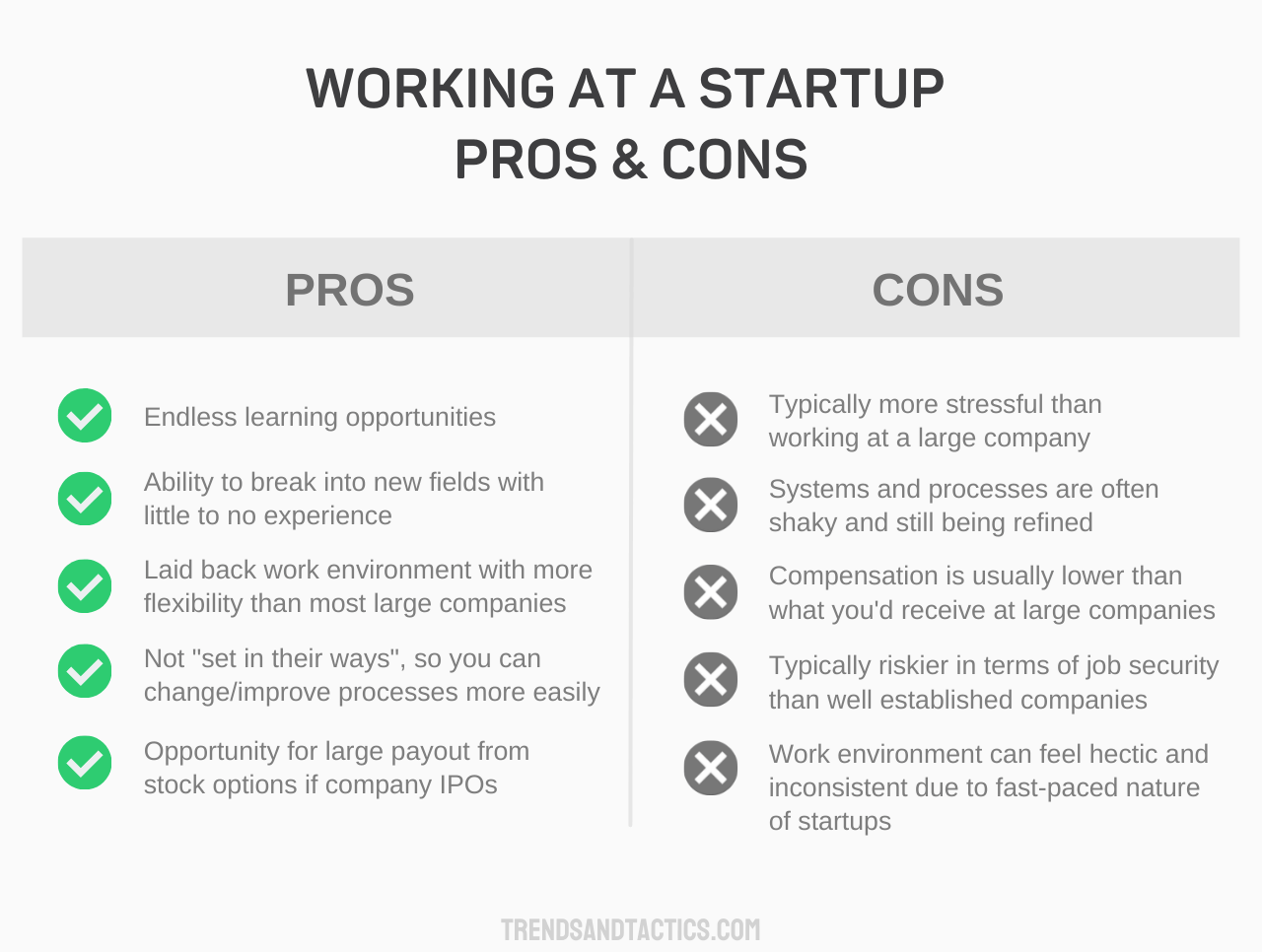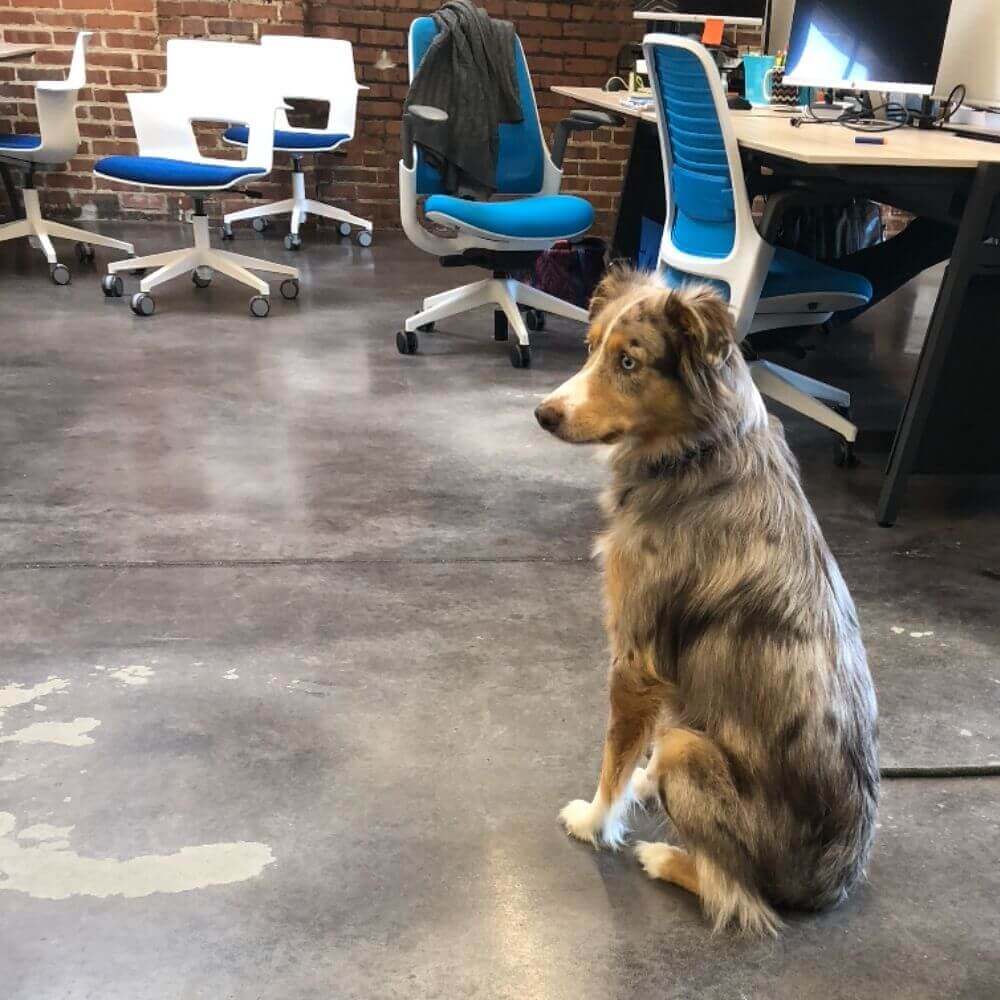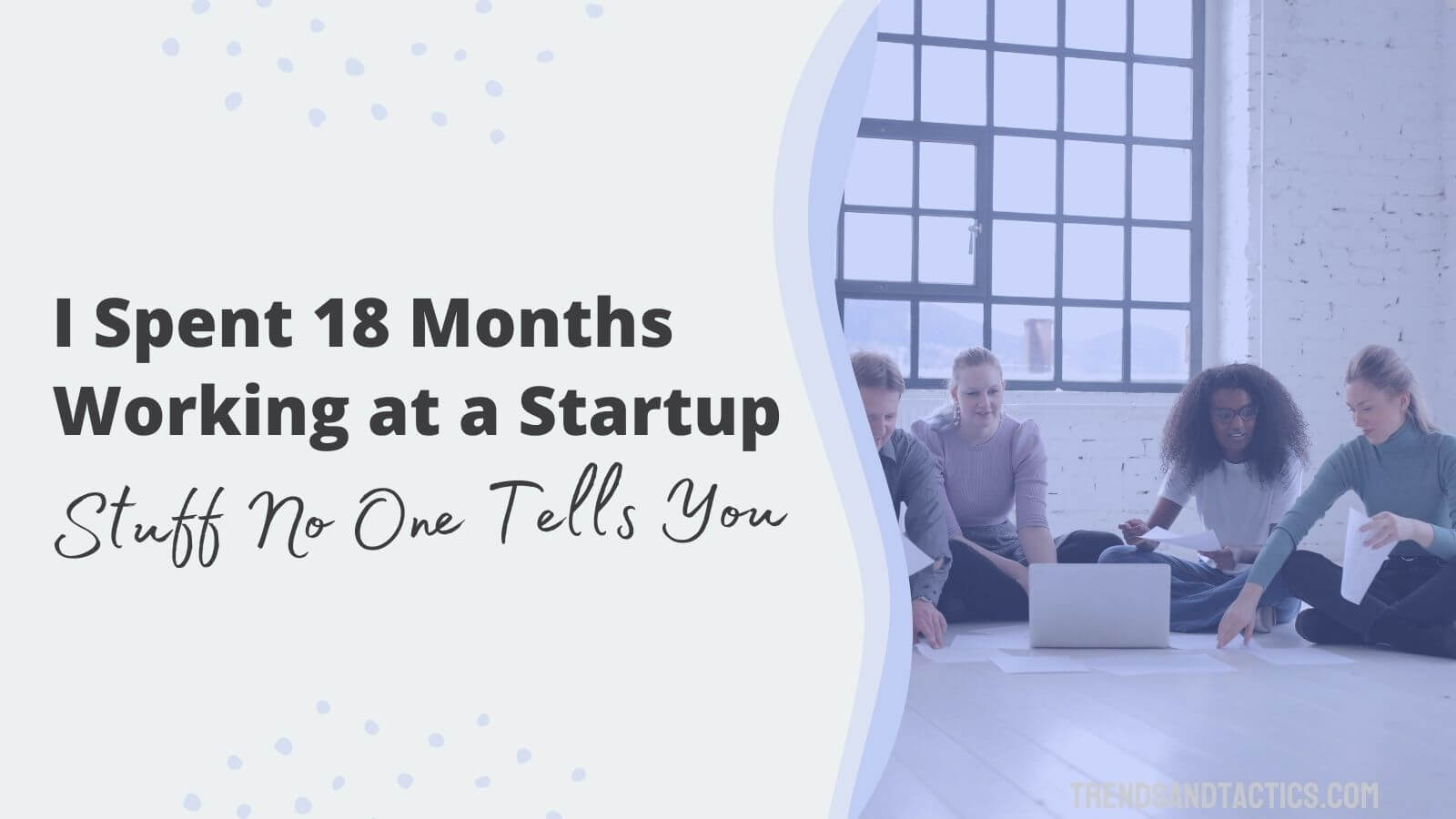You’re hired.
There’s no sweeter words to a newly graduated student, whether working at a startup vs a big company.
At least that’s what I thought 4 years ago, when I started my first job at a startup after graduation.
I worked there for 18 months – here’s the stuff no one tells you about working at a startup.
What are the benefits of working at a startup?
From my experience, the benefits of working at a startup include: more learning opportunities, laid back and non-traditional work environment, less bureaucracy, and fun perks like unlimited PTO and ability to bring pets to work.
It’s important to see the full picture though, here are the pros and cons of working for a startup.

Is working at a startup worth it?
After spending 18 months working at a marketing startup, it was absolutely worth it, due to the accelerated pace you can gain experience and learning opportunities.
Startups are usually less competitive than large companies, so startups are hugely beneficial for people with minimal experience in their field or who want to transition to a brand new industry.
That said, highly competitive startups do exist, so make sure you are avoiding the biggest reasons why people don’t get the job.
In exchange for these perks, you’ll need to be comfortable working in an environment that often has less structure, usually lower pay, and sometimes asks you to work overtime.
Working at a startup after graduation fast tracked my marketing career, and exposed me to projects I would’ve never been able to work on otherwise.
Is working in a startup stressful?
Working at a startup often has the reputation of being stressful, but in my experience it wasn’t any more stressful than working at a large company. Startups have a tendency to be more stressful, because there are less processes, tighter budgets, and fewer people.
But how much stress you’ll face ultimately depends on the company’s values and culture, regardless of it being a startup vs large company. That’s why it’s critical to learn about the company culture when interviewing, so you aren’t blindsided.
Not to mention there are some jobs that don’t have deadlines, which is the surest way to avoid work related stress.
Tactics for Success
- When interviewing, ask these questions to uncover how stressful the work environment likely will be: “What does a typical day look like?” and “How would you describe the work environment?
- Checking Glassdoor reviews for the startup can also clue you in to whether the work environment is healthy or high stress. I religiously check company reviews on Glassdoor, and it’s always been a good litmus test for what the company was actually like.
Do startups pay well?
In my experience, startups pay well in some situations, but usually pay workers a little less than large companies. For example, very technical roles and executive roles will earn salaries more in line with compensation from large companies.
The reason startups usually offer lower compensation is because they are still in the process of starting up their company, which means they often have less working capital to pay workers, as opposed to multi-billion dollar companies.
When working at the marketing startup, which had about 50 people, around 6 people left during those 18 months due to low pay.
Although you might not be making top dollar while working at a startup, you can rapidly grow high income skills.
Why work in a startup?
Many people early in their career wonder why work in a startup, and the truth is it’s not for everyone, but if you want to build your experience as quickly as possible or break into a new field, it’s a great option.
Startups are considered riskier than well established companies, since they are still fighting to get traction in the market.
However, with great risk comes great reward, and if you happen to work at a startup that ends up going public, it can result in a major windfall if you had stock options for the company.
Large payouts from stock options is not a guarantee but it does happen and has produced massive wealth for some individuals.
For example, the budget app Expensify plans to IPO soon, likely causing all 140 employees to become millionaires, at least on paper.
Why you should not work in a startup?
If you want a structured work environment with consistent and routine work, then working at a startup probably is not for you. In addition, if compensation is a top priority, then you’ll likely earn a higher salary at a large company, at least in the short term.
As an employee at a startup, problem solving will be part of your daily routine, simply because core processes and procedures are still being refined. If you don’t like making decisions on the fly, the startup environment will feel challenging.
4 Things No One Tells You About Working at a Startup
I spent 18 months working at a marketing startup right after graduating from college. These are the 5 most surprising lessons I learned.
1. Startup’s Non-Traditional Work Culture is REAL
When I went to interview for the marketing startup, I got a pretty non-traditional welcome.

At this startup, you could bring your dog to work, and so a few people did several times a month. Other non-traditional work culture elements include:
- wearing comfortable clothes (hoodies, jeans, t-shirts, etc)
- take breaks by playing ping pong
- freedom to work around the office, on the patio, or in nearby coffee shop
- Open-mindedness to new processes and culture improvements
If you’re like me and are looking for jobs with no dress code, almost all startups allow you wear clothes you’re comfortable in.
2. Don’t Allow Yourself to be Overworked
As an adult in the working world, setting boundaries is mandatory – otherwise, you’ll be someone else’s doormat. It’s true for any company, but startups especially tend to have more work to do, than there are working hours.
This means, in order to get your job done, you might feel the need to work 45, 50, 55, or even 60 hour weeks. What you’ll find is, the work is never done.
There will always be more projects. Therefore, if you want to maintain your work-life balance, you have to be okay walking away from unfinished work.
3. You’ll Learn New Things & Develop Skills You Didn’t Expect
“Wearing many hats” is a common turn of phrase in the small business world, and it simply means you’ll be doing lots of different things. What surprised me was how true this was, and how much I’d be pushed outside my comfort zone.
I was hired as a marketing strategist, and would often resolve bugs in html/css, analyze data, build campaign strategies for clients, learn about new marketing trends, and optimize web pages.
Some of those responsibilities were inline with my role, but others pushed me to learn new skills.
4. There’s a Tendency to Overuse the Phrase “It’s a High Priority”
It took me a couple months to realize this, but in startup world the phrase high priority rarely ever means it. You’ll see labels like this thrown around constantly: high priority, urgent priority, and critical priority.
I’ve found that projects are given these labels to create urgency for others so they get the work completed faster. It turns out when every project is high priority, nothing ends up being a priority.
If you’re one of those people who slaps that label on every project, few will trust you when a project is truly a big deal – it’s the 21st century’s version of the crying wolf.
Wrapping Up
Working at a startup for 18 months was a fantastic experience, that ultimately catapulted my career.
Although it can be challenging, there’s no better way to gain experience in a field you want to transition into.
John-Paul Cody has been an avid online seller for years, across platforms including eBay, Mercari, Craigslist, and more. He has a Bachelor's Degree in Economics from UNC Chapel Hill, and works in data analytics and marketing.






